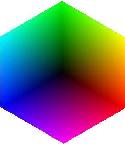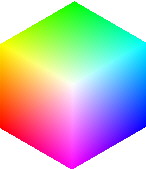
|
information ecology projects |

|
|
key domains |
peace cubes |
digital bridges in peace |
uniting for peace |
gandhi-king season |
key classes | peace | conferences | public participation | habitat | ecological design | index | search |
|
Ad Hoc Working Group on the Year 2000 Crisis
| electronic publishing | email lists | information ecology | millennium | ngo networks, committees & | |
|
Role: Convenor
|
New York, NY
1998.06-2000.12 |
| Documents | |
Proposes the adoption of the digital date clock as a universal format for recording dates - using yyyy.mm.dd - eg 1998.12.20 - format that eliminates ambiguity and cultural variation in recording dates, uses characters compatible with prevailing standards for file names, exhibits the properties of an ordinal number and as a result promotes orderliness, and is not only fully year 2000 compliant but can also be used as a public awareness learning mechanism in preparing for the millennium bug / crisis / bomb - Y2K. information-habitat.net/dpu-pip/y2k-counting.pdf |
New York 1997.06 |
Web site for the Y2K Three States Network of representatives of public agencies and managers of public utilities and transportation networks concerned with computer-date-related Year 2000 preparations in the New York City tri-state area - New York, Connecticut and New Jersey. |
New York 1998.09 |
Presentation of the basis for the use of the Digital Date Clock - with yyyy.mm.dd format - as the ideal solution for a universal format for recording dates of transactions. pdf file from an HTML page. |
Brooklyn 1999.10 |
| Electronic mailing lists | |
An electronic mailing for the Ad Hoc NGO Working Group on the Year 2000 Crisis to disseimnate information, plans, etc. relating to preparations for possible threats in response to the Y2K Crisis. Inactive. |
1998.06-1998.12 |
|
Databases |
|
Gives the day of the week for any date between March 1900 and 2078, and displays the date in expanded Digital Date Forma: yyyy.mm.dd - Day, Date, Month, Year. |
Baltimore, MD 1991.04 |
NGOS@UN was designed as a catalyst for a cooperative information ecology framework to work with the Secretary-General of the United Nations in response to a request from the Economic and Social Council to make every effort to enhance and streamline, as appropriate, practical arrangements to facilitate the participation of non-governmental organizations in the work of the United Nations - and specifically to make effective use of database technology. NGOS@UN grew out of the INFOHAB database, and integrated extensive information - from disparate sources - of Non-Governmental Organizations (NGOs) accredited to the Economic and Social Council (ECOSOC) and to the Global Conferences of the 1990s. As it developed, NGOS@UN grew significantly in size and structure incorporating major new sections, including record of NGOs in the process of seeking accreditation with ECOSOC, historical data on NGO accreditation, and information on official United Nations documents pertaining to NGO Accreditation and the work of the Committee on Non-Governmental Organizations. |
Brooklyn, NY 1999.02 |
| 9999.99-9999.99 | |
|
Ad Hoc Working Group on the Year 2000 Crisis
| electronic publishing | email lists | information ecology | millennium | ngo networks, committees & | |
|

|
information ecology projects |

|
|
key domains |
peace cubes |
digital bridges in peace |
uniting for peace |
gandhi-king season |
key classes | peace | conferences | public participation | habitat | ecological design | index | search |
a project of information habitat: where information lives
information ecology index is registered under a creative commons attribution-noncommercial-sharealike license